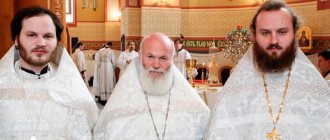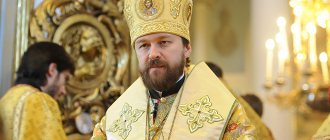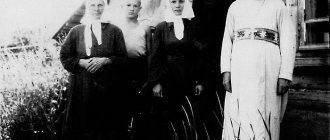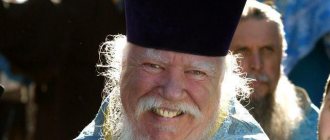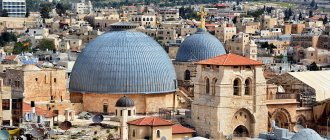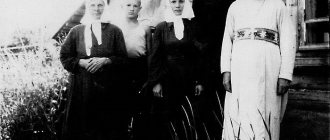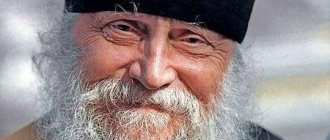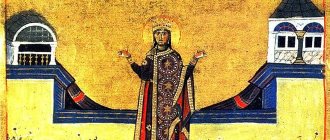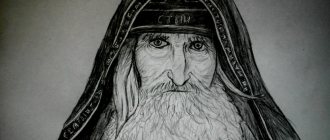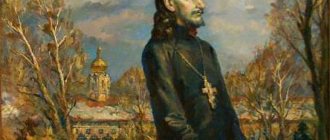It is believed that a person’s name influences his character and destiny, so people at all times have been very careful when choosing one. The science of anthroponymy deals with the study of names. Using scientific tools, scientists reveal secrets, describe character, and explain the behavior of certain people. In the article we will talk about two people who lived in different eras, but bore the same name. We will talk about Alfred the Great, King of Wessex, and Alfred Mirek, a Russian scientist, professor of theory and history of music.
King of England
We begin the story with the legendary ruler of Wessex, Alfred the Great.
This man was born in the 9th century, during the Middle Ages. He spent his childhood on the royal estate of Wanating (now Wantage, Oxfordshire). Alfred the Great was the youngest son of Aethelwulf (King of Wessex) from his first marriage to Osburga.
Even in early childhood, the future ruler became acquainted with the works of ancient writers and studied several foreign languages. At the insistence of his father, Alfred visited Rome in 853, where he met Pope Leo IV. The next trip to Rome took place in 855. Then Alfred was accompanied by his father.
As a child, the future king was in poor health, but had a tough character. From a very early age, he went hunting, strengthened himself with exercises, trying to keep up with his brothers. By the age of 20, he was considered a courageous and experienced warrior.
Partition of England
On May 5, 878, Alfred attacked the Viking camp from its weakest side and the next day took the fortifications, in the words of the Anglo-Saxon Chronicle, “... remaining lord of the place of slaughter...”. The defeated Danes took refuge in the fortress, which the Anglo-Saxons kept under siege for two weeks.
Finally, the leader of the Danes, King Guthrum of East Anglia, entered into negotiations with Alfred. According to the concluded peace, Guthrum undertook to leave Wessex and be baptized. Three weeks later he arrived to Alfred with 30 noble people. King Alfred was his godfather. Here an agreement was concluded on the division of England between the Danes and the king of Wessex.
According to the treaty, the border between Alfred's kingdom and the Viking possessions ran up the Thames and its tributary Lea through Bradford and reached the ancient Roman road, which the Anglo-Saxons called the Road of the Sons of Willow. All lands captured by the Scandinavians (East Anglia, Essex along with its destroyed capital London, all of Northumbria and the eastern half of Mercia) remained under the rule of Guthrum. Alfred got Wessex, Sussex, Kent and the west of Mercia.
The peace with Guthrum gave the Anglo-Saxons several years of respite in the depths of their island, but the Vikings, who plundered the opposite shore of the English Channel, also attacked the shores of England, hoping to take possession of the lands here. However, Alfred either prevented them from landing, or inflicted defeats, preventing them from gaining a foothold on the shore.
In 886, Alfred recaptured London, which was badly damaged by the Danes, who plundered it and almost completely burned it. Alfred rebuilt the destroyed city and made it his second residence, along with the main city of Wessex, Winchester, which remained the capital of England.
Alfred erected many new fortifications and organized a special militia in all places that could be attacked. After suffering several defeats, the Vikings stopped trying to attack Alfred's possessions.
The first years after the coronation
Alfred the Great became king after the death of Ethelred, his elder brother. This happened in 871.
In England, Alfred the Great was considered the most educated man among his contemporaries. But at the beginning of his reign this played a cruel joke on him. The fact is that Alfred the Great was able to win the people's trust thanks to his courage. Having become king, he, however, quickly lost it. Alfred did not take into account the experience and knowledge of the Witenagemot (national assembly). He strove for unlimited power and came up with various innovations that were negatively perceived by the elders.
The arrogance of King Alfred the Great, according to contemporaries, was such that he did not even deign to receive petitioners, did not listen to complainants, and did not show leniency towards the weak, considering them “nothing.” The Anglo-Saxons perceived this behavior of their ruler as an attack on their freedoms and rights.
Orthodox Life
About one of the Western Orthodox saints.
The Encyclopedia tells us that the holy king of Wessex in 871-899-901, Alfred the Great, was born c. 849, died on October 26, 899 (October 28, 901). He was the first of the Anglo-Saxon rulers of Britain to call himself King of England.
During the early Middle Ages, England was divided into several Saxon kingdoms called the Heptarchy. Alfred's parent Aethelwulf was a ruler loyal to Christianity who made a pilgrimage to Rome and maintained monastic monasteries in Wessex. Ethelwulf even once donated a tenth of his treasury to the monasteries, and his generosity so impressed his contemporaries that they created a proverb about a generous gift that has existed for several centuries - “Ethelwulf’s Tithe.”
Since childhood, Alfred knew the languages and works of ancient ancient writers. As a child, at the behest of his father, he traveled to Rome (853), where Pope Leo IV anointed him as the future king of Wessex.
Alfred was distinguished by poor health and strong will. From his youth, he tempered himself with military exercises and hunting, and by the age of twenty he had become a brave warrior, which was very important in a society where everyone could ultimately rely only on their own strength. In addition, most of England during these years was under the rule of the Viking Danes, who planned to expand their possessions at the expense of Alfred’s kingdom. Alfred will enter into a long war with the Vikings, emerge victorious, liberate England from invaders, create a powerful army and navy, patronize art, education and the Church, and perceive his crown as service to God.
The closer you are to the Almighty, the more wisdom you have. Saint Alfred the Great said that no king could reign without men of work, men of war and men of prayer. That is, he far-sightedly understood that in any matter, both national and personal, work, effort and prayer must be combined. Compare this with a certain modern film, where it is said with a grin about heroes who find themselves in a difficult situation: “The only thing left for them is prayer,” in the sense that there is nothing left for them at all. Alfred was not like that. He believed that "all the troubles of England arise not from political, civil or military causes, but from spiritual and moral causes." The pagan Vikings with whom the king fought, in his opinion, were allowed by God for England’s retreat from the path of faith at the end of the 8th century. Therefore, in order to cope with them, it was necessary to revive spirituality, a deep and responsible attitude of the people towards religion and worship. To achieve this in practice, Saint Alfred made the wisest decision: realizing that it would not be possible to immediately return the entire people to pleasing God, he began to revive three things: monasticism, learning and law. The law was supposed to ensure the rights of commoners so that they could more calmly go to temples and serve God. Learning was called to reveal God's truth and beauty in all aspects of existence and everyday life. And monasticism was supposed to educate great confessors who could lead the people to the Lord in the spirit of the ancient holy fathers, and not their own inventions about Christianity.
Alfred believed that personal example was important in the matter of faith. He felt burdened by power, but was never burdened by temple service. This is what is said about him in his life: “He attended divine services every day and received communion. He prayed and read the Psalter not only during the day, but also at night. He loved to listen to the Holy Scriptures and other books being read aloud, and tried to memorize what he heard. Later he began to translate the psalms - these translations have survived. He did a lot of charity and loved to give alms to the poor, while showing extraordinary generosity and complacency towards both compatriots and foreigners. Alfred treated his bishops and clergy, nobles and servants with care."
Having united England, he did not at all enjoy the fruits of his own power. He was courteous and friendly to everyone and was not arrogant with commoners. He treated young people as his own children and often had long conversations with them on moral and scientific topics. He literally infected those around him with his thirst for knowledge. He deeply revered the monks and had his own confessor - a saint. He listened to the holy monastic elders and did a lot on their advice.
Therefore, before his death, looking over his life, Alfred was able to rightfully say: “All my life I have strived to live with dignity, and as a memory of myself, I leave good deeds to those who come after me.”
The story of the famous Anglo-Saxon king and Orthodox Saint Alfred is a story about Providence and the hand of the Creator in history. The very ancient kings and monks perceived the Viking invasion of England as retribution for the sins of Christians. Alcuin even said that the first recorded Viking attack on Lindisfarne Monastery occurred because the monks began to indulge in luxury. The holy Cappadocian wrote that nation-wide vices are curbed by nation-wide executions, and their meaning is to bring a large people to repentance. And this truth somehow deeply and simply one day began to be understood by the ancient Saxon kings. So, Alfred's parent, Aethelwulf, goes on a pilgrimage to Rome, and before that he gives the Church a tenth of all his lands. Alfred himself, having already defeated the Vikings, transfers a third of the country’s income to the needs of the Church. Of these, a quarter is to help the poor and needy who come to the king, a quarter is for monastic communities founded by the king personally (Shaftesbury and Athelney), a quarter is for the school and a quarter for all other monasteries. The king strives for a revival of spiritual life and believes that the holy monks will teach the people how to behave correctly. The return of Christians to a deeper understanding of the faith has borne fruit both economically and politically. The Vikings are defeated and driven out, England becomes a unified power under the hand of one king.
During the war with the Viking leader Guthrum there was such an episode. The Vikings find themselves in a difficult situation, Alfred tries to make peace and takes an oath of non-aggression on the relics, and Guthrum swears on his pagan amulet - the sacred ring. But the proud Viking knows that a large fleet is rushing to his aid - 120 ships with warriors, and easily breaks his oath, especially since the fleet has already entered the waters of the English Channel. And then suddenly a storm begins in the strait, which sinks all the Danish ships. And people see in this the Lord’s will, punishing the perjurers. “The world never goes beyond the boundaries of moral laws,” G. Chesterton will say many centuries later. And this is true for everyone, regardless of whether he knows about Christ or not.
Alfred appreciated poetry and was ready to listen to the Saxon poems of the Osprey storytellers day and night. He wanted to rule over a kingdom of educated people, which was a huge rarity for a medieval king. For comparison, let's say that the same kings of Scotland for many centuries could not even write their own name, because they were illiterate.
Alfred's source of inspiration was the temple service. He attended both the Liturgy and Vespers every day, being confident that “every talent is exhausted, and the reign of every person soon quietly passes away if it is performed without wisdom...”
Outstanding intellectuals of his era, attracted by gifts and support, became Alfred's close associates, and they participated in the work planned by the king to revive culture and education. Not having so many educated people in England, Alfred invited them from other countries.
The most important role under the king was played by bishops, whose advice he always listened to. The bishops read Latin literature aloud to him and helped him translate books into Old English, because Alfred was almost the only person in his kingdom who worked on translations in order to give as many reading opportunities as possible to his people.
Alfred considered one of the most important royal duties to support learning and said: “The share of kings who do not fulfill the duty assigned to them by God to encourage learning falls to worldly disasters that affect their people.”
It is interesting that Alfred, to a certain extent, was not an autocratic ruler - if the Norman kings would rule in England as dictators, then the Saxon kings always relied in their power on a really functioning and empowered council of elders and nobility. Alfred was also attentive to the advice given to him by the people of the Church.
The king cared about the education of his subjects all his life. His decree has been preserved: “That all the young people who are now in England, born of free people, having the necessary means, should be sent to study until they can read well what is written in English.”
He considered wisdom to be the main virtue of a ruler. Alfred was confident that religion would flourish where literacy was revived first, not only Latin (almost universal in Europe at that time), but also Old English.
The king also worked hard on translations of texts. Moreover, he not only translated Latin books into Old English, but also often altered them, supplemented the texts with his own reflections, interpretations and, as A. Glebov writes, “included the original source in the contemporary cultural and historical context.”
Generosity was a virtue of the kings of the early Middle Ages. And Alfred spent a sixth of all his income on alms to wanderers and foreigners who came to him in large numbers. Alfred generally believed that “the wealth of the bearer of the royal title is the source from which he should draw benefits for the decent maintenance of his associates and the reward of the most worthy” (A. Glebov). He was convinced that a good king should not only provide for his servants, but also repay them with kind affection.
Alfred was a man of deep thought and breadth of views, a completely unusual monarch, especially against the backdrop of his era, such a king, the kind of king who is not enough to describe only historical facts, but requires the language of either hagiography or a high fairy tale, the same words that Tolkien describes the king are required Aragorn, noble and tall, wise and courageous, and always able to bend the knee before his Higher...
Artyom Perlik
Creation of a fleet
The truce that was concluded with the Danes freed Wessex from raids for some time. However, the rest of the country found itself without the help of a ruler and was soon conquered by the Vikings. Alfred the Great used the truce to build ships.
By 875, a large fleet had been created, which inflicted several defeats on the Danes. As the Anglo-Saxon chronicle says, Alfred the Great defeated the fleet of Ubba (king of the Danes) and captured the banner, which depicted the raven of the god Odin, calling on the warriors to a victorious campaign.
The construction of ships continued. As a result, Alfred the Great created a fleet that reliably protected the kingdom from the Vikings even during the reign of Edward the Elder, his son.
Military reform
According to many Anglo-Saxon sources, Alfred the Great divided the country into districts, in which one soldier was posted for every five households (guide). The warrior was supplied with everything he needed by the residents themselves. The cities also provided a certain number of soldiers.
Alfred the Great reformed the previously existing system, retaining the obligation to serve for free citizens, but giving them some concessions. Thus, each soldier could spend part of his term on his own farm. In addition, some soldiers carried out garrison service in villages and cities, while others were in the active army. After a certain time they changed places. Thus, the soldiers were not away from home for long. In addition, each farmer had to participate in the maintenance of fortifications and bridges.
Alfred abandoned the people's militia. Instead, he began to form a special military class. Representatives of the Anglo-Saxon nobility and soldiers of the royal squad were exempted from working on the land. The warriors became medium and small landowners for whom the peasants worked.
Alfred's great merit is that he began to restore old and build new fortresses capable of repelling attacks from small enemy detachments.
Administrative and legislative changes
During his reign, Alfred paid great attention to public safety. To strengthen law and order in society, he elevated the royal court, placing it above other judicial authorities.
For many years the kingdom waged continuous wars. During this time, the entire legal system fell into decay: the courts no longer respected juries, nobles violated the freedoms of citizens. In an effort to rectify the situation, Alfred compiled the first set of laws. It included the most relevant and relevant regulations of the various Saxon kings.
Alfred the Great's second wind
Meanwhile, a small detachment gathered around Alfred. His people fortified the island among the swamps with an earthen rampart and palisade and began making sudden forays against the Danes. Alfred's army gradually grew. After six months of guerrilla warfare, he decided to announce his name and attack the main Danish camp. According to Asser, Alfred wanted to personally inspect the enemy's position.
Disguised as a traveling musician, he infiltrated their camp, entertaining the Danish warriors with Saxon songs. Having returned safely, he sent to all the surrounding areas to summon the Saxons to war, setting up a meeting a few miles from the Danish camp. For three days, armed men, individually and in small groups, arrived from all directions, and everyone was glad to see their king again.
Last years
At the beginning of the last decade of the 9th century. England was again attacked by the Vikings. Their goal was fertile lands in the south of the kingdom. However, Alfred and his son Edward were able not only to repel enemy attacks, but also to completely clear the English Channel of robbers.
The king devoted recent years to developing plans for an alliance of Christian powers to fight the pagan Normans. He died in Winchester, according to various sources, in 899 or 901.
The film Alfred the Great was released in 1969. Director Clive Donner tried to tell as fully as possible about the fate of this man, who was faced with the task of uniting England and repelling the Viking robbers.
Confrontation with the Vikings
In the spring of 876, Guthrum (military leader of the Viking Danes), having secured the support of the Welsh, moved with his army south. King Alfred came out with an army against Guthrum, but did not enter the battle, but offered him a ransom. He took the ransom and went to Exeter.
All winter Alfred prepared the army and navy for war with the Danes. In the early spring of 877, Wessex's army surrounded Exeter, and Alfred's fleet blocked the coast and denied the encircled Danes the opportunity to receive reinforcements. The Danes from Wargham tried to break the blockade of Exeter, but a strong storm scattered most of the Viking fleet and smashed it against the coastal cliffs. Hunger and despair forced the Danes to negotiate and capitulate. A peace was concluded in which the Danes handed over hostages, paid a ransom and swore on a sacred bracelet smeared with blood not to attack the possessions of King Alfred again. The Danes soon broke their sacred oath. Meanwhile, the reassured Alfred disbanded his army and returned to one of his estates.
Taking advantage of the fact that Alfred disbanded his army, in 878 the Danes resumed a full-scale war. King Guthrum moved south. His considerable military forces invaded Wessex from several directions, captured London and stopped on the river to spend the winter there. For Alfred and his troops this was a complete surprise. The country was paralyzed with fear. No one could provide organized resistance. The Danes marched throughout the kingdom with fire and sword, dealing with poorly organized detachments of the Saxons.
Alfred in vain sent messengers with a drawn sword and an arrow to cities and villages, calling on the people to war. Only a few responded to his call. Alfred found himself without an army, surrounded only by a small detachment of warriors loyal to him.
Under these circumstances, Alfred abandoned his warriors and his people, and fled to save his life. He found refuge on a peninsula surrounded by swamps. He baked his own bread from what the fisherman gave him in hospitality. The army of the Danes ruled his kingdom without hindrance. Almost no one knew what happened to the king.
The Saxons soon saw that the troubles of conquest were much worse than the heavy hand of Alfred that seemed to them at one time. Alfred himself, after difficult trials, became less arrogant and wiser.
Alfred Mirek: short biography
This man was born in 1922, on November 21 in Tashkent. Alfred Mirek is the founder of the Museum of Russian Harmonica. After his death, his wife Natalya Alexandrovna headed the Museum.
At the beginning of 1923, Mirek's family moved to Odessa. Here Alfred began learning to play the piano at the age of five. In 1930, the young man entered the school named after. E. F. Gnesina. In 1938, Alfred Mirek, having received the profession of an electrician, got a job in construction. In the evenings after work, he works as an accompanist.
Pedagogical activity
In 1945, Alfred Mirek began to teach himself to play the accordion. Having mastered the game, he gives solo concerts, works as an accompanist, and accompanies productions in the theater. Chernyshevsky in Borisoglebsk.
In the fall of 1946, Mirek returned to Moscow. Here he enters a pedagogical school, which he successfully graduates in 4 years. While still a student, in 1947 Alfred worked as a music school teacher and director of an accordion orchestra. In 1967, Mirek graduated from the capital's Institute of Culture. Here he studied at the button accordion department, simultaneously teaching accordion and button accordion.
New arrest
Despite the high appreciation of his scientific work, Mirek was not awarded an academic degree, because he was arrested on a fabricated case. He was accused of selling a collection of harmonicas to the Leningrad Theater at an allegedly high price. As a result, Mirek was sentenced to a year in Kresty prison.
At the end of 1986, however, the RSFSR Prosecutor's Office, by its resolution, closed the case due to the lack of corpus delicti. The damage caused to Mirek was compensated, and those responsible for his illegal arrest were severely punished. In 1987, the award of an academic degree for his doctoral dissertation finally took place.
Literary activity
Alfred Mirek is the author of twelve books, including teaching aids on music and the history of instrumentation. One of his main works is considered to be the world’s first encyclopedia on reed instruments “Harmonica. Past and present".
For many years, Adolf Mirek worked in libraries and archives in different cities of the country. It was thanks to this that he was able to create socio-political and historical works. Thus, Mirek is the author of the popular books “Prison Requiem” and “Notes of a Prisoner.” In them he talks about his time in “Kresty”, “Butyrka”, and in the Lubyanka prison.
The book “Red Mirage” brought wide fame to the author. Executioners of Great Russia." Alfred Mirek wrote it shortly before his death. It must be said that in recent years he took an anti-communist position. In the book “The Executioners of Great Russia,” Alfred Mirek describes the process of formation of Soviet power. The main task of the author is to consider and analyze the period of the birth and formation of Bolshevism in moral, human rights, economic and political aspects. Mirek talks a lot about outstanding people of that era: Trotsky, Lenin, Sverdlov, Dzerzhinsky, Frunze, Gorky, Mayakovsky, etc.
This book is written in a free, lively manner, with the humor inherent in the author. Thanks to this, the text is easily perceived by readers of any age. The focus is on the analysis of the biographies of people who lived in the Soviet era, the processes that took place during the formation of Bolshevism, the mechanisms of the formation of socialist consciousness, the strengthening and development of the repressive system, its goals, objectives, role, and the introduction of a new economic model. Mirek talks about the fates of scientists (both famous and forgotten), artists and cultural figures, diplomats, and military leaders.
Heroes of the first seasons of the series "Vikings"
Ragnar Lothbrok (Travis Fimmel)
The Danish king (supreme ruler) is one of the most prominent heroes of the Scandinavian sagas, but whether he actually lived is unknown for certain. His last name, or nickname as it was then considered, means “leather pants.” According to one legend, this piece of clothing, made for him by his first wife Lagertha, was his kind of amulet. He was married three times and had many children, including illegitimate ones. Ragnar “went” to Eastern Europe, Britain, and France, even capturing Paris in 845. After a clash with the Anglo-Saxon king Ella II, Lothbrok lost most of his army and died, being thrown into a pit with poisonous snakes. Despite the liberties with which the creators of the Vikings series presented his story, the death of Ragnar in the series is shown in accordance with his life story.
Lagertha (Katheryn Winnick)
The first wife of Ragnar Lothbrok, the northern warrior Lagertha, despite her external fragility, could compete with men in martial arts. According to the ninth book of the “Acts of the Danes” by the chronicler Saxo Grammar, during one of the battles Ragnar noticed Lagertha in the front ranks of his warriors and was conquered by her courage and bravery. Eventually the Viking won her favor and married her, and then they had three children. This marriage lasted exactly until Lodbrok met Tora from Gotland.
Lagertha, meanwhile, also married again, but subsequently killed her husband in order to rule her lands independently. In the series, her fate developed in a similar way, but throughout all seasons it is demonstrated that she has great affection for her ex-husband, who remained her first and only true love.
Rollo (Clive Standen)
In the series, Rollo is the older brother of Ragnar Lothbrok, who lives in the shadow of his outstanding relative and is trying with all his might to make his way to glory, not shying away from betrayal. The real Rollo was the first Duke of Normandy (Normans = Scandinavian robbers) and had nothing to do with Lodbrok, but he also raided the outskirts of Paris. In 911, he entered into an agreement with the king of the West Frankish kingdom, Charles III the Simple, married his daughter and converted to Christianity. These events were also reflected in Vikings. The ruler Rollo (or Rollo) was wise. He introduced strict laws and created a Norman identity that distinguished his people from the Scandinavians and the French.
Aslaug (Alyssa Sutherland)
Ragnar Lothbrok meets Princess Aslaug in Götaland, where he goes on a diplomatic mission on behalf of the Danish king Horik. Having entered into a love affair with a Viking, the heroine quickly realizes that she has become pregnant and goes to his native Kattegat. In the series, she becomes Ragnar's second wife, while in Scandinavian sources the girl was his third wife after Thora from Gotland.
It is known about the life of her prototype, the daughter of the warrior Siegfried and the Icelandic queen Brunhild (the heroes of the “Song of the Nibelungs”) that after the death of her parents she was raised in a peasant family and was forced to hide her origins. Lodbrok was captivated not only by her beauty, but also by her lively mind. It is believed that Aslaug was a seer and often warned her husband against rash actions - the Vikings series also emphasizes that she has a magical gift. She gave birth to Ragnar 4 sons: Ivar the Boneless, Bjorn Ironside, Hvitserk and Sigurd Snake-Eyes.
Floki (Gustaf Skarsgard)
A talented shipbuilder and friend of Ragnar Lothbrok in the series, he is an eccentric guy whose actions can sometimes seem unpredictable. The basis for his image was the Norwegian navigator and explorer Floki Vilgerdarson. He has little in common with his movie brother, but they are both considered important figures in Icelandic history. Floki from Vikings discovered this volcanic island, brought people there and made it a Scandinavian colony. Whereas Vilgerdarson became the first Norwegian to visit Iceland, and it was he who nicknamed this land Iceland - “Ice Country”.
The hero of the series considers the god of cunning Loki to be his patron, and one day for a serious offense he is punished like his patron: he is tied in a cave so that water drips on his forehead (in myths, a snake hung over Loki, from whose mouth poison was dripping).
Helga (Maude Hirst)
Floki's beloved Helga, although not a warrior, nevertheless often accompanies her husband on campaigns. And, despite his oddities and extravagant antics, she is very devoted to him and dreams of a happy family life - even after he kills Ragnar Lothbrok’s advisor and friend, the former monk Aethelstan. Her gentle character and religiosity help her endure all hardships, but the death of her only daughter breaks her, and she becomes obsessed with the idea of motherhood. One day, while sailing to the Mediterranean Sea, Helga meets a Moorish girl, Tanarus, and wants to adopt her. The child does not accept his new family, and Helga's blind love and attempts to establish contact with her ultimately lead to tragedy.
King Egbert (Linus Roache)
A gifted and far-sighted politician, Egbert was able to legally annex neighboring Mercia to his possessions and create the most powerful state in England. In the series, the king uses his diplomatic skills to establish connections with both the monk Athelstan and the rebel Viking Ragnar Lothbrok. But behind his image of an enlightened and reliable monarch, he hides selfishness, hypocrisy and lust: it is not for nothing that Egbert slept for many years with his daughter-in-law, Princess Judith, and betrayed his old friend Lodbrok. The real Egbert, whom historians consider the first king of England, did not live to see Ragnar die. They may have never even met. But during his lifetime, he established relations with the church, made decisions only together with the Council of the Wise (nobility and clergy) and secured the transfer of royal lands to only male family members.
Halfdan Black (Jasper Pääkkönen)
The younger brother and comrade-in-arms of Harald Fairhair was his father in real life and, of course, did not die by his hand. In the Vikings series, Halfdan the Black appears as a very cruel man who takes pleasure in killing his enemies and other violence. He takes part in Ragnar Lothbrok's campaign against Frankia, where he brutally kills local residents and rapes women. However, many years later, being an ally of Ragnar's son Bjorn Ironside, Halfdan noticeably softens and does not share his brother's desire to capture Kattegat. Having twice sided with Bjorn and Lagertha, Black fell into disgrace with Harald and was subsequently stabbed to death by him. The real-life Halfdan the Black was the king of Agdir (a region of Norway) and was even married to a woman from the family of Ragnar Lothbrok. In this marriage, by the way, Harald was born. He died at the age of 40, drowning in an icy lake.
